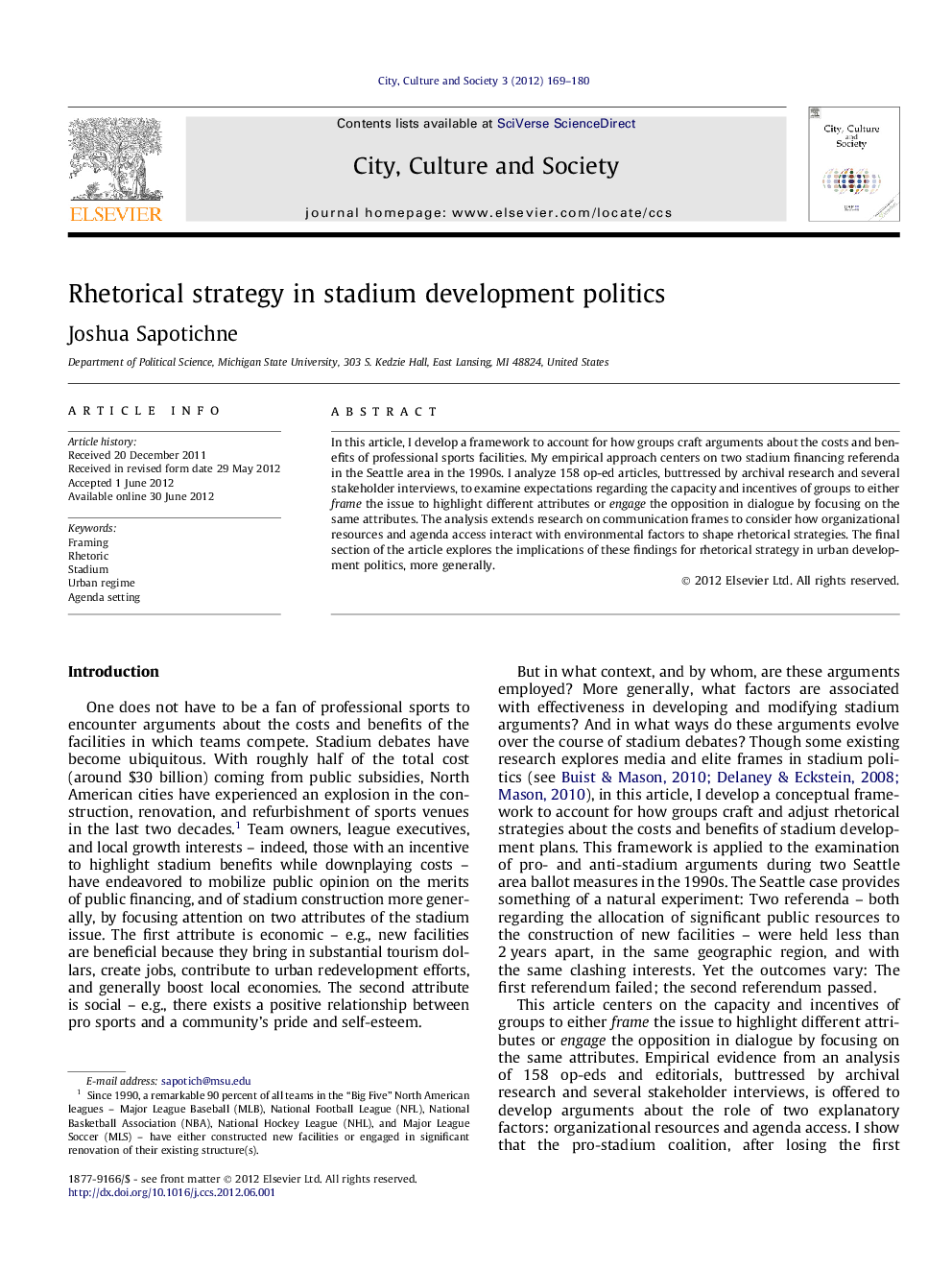| Article ID | Journal | Published Year | Pages | File Type |
|---|---|---|---|---|
| 5048352 | City, Culture and Society | 2012 | 12 Pages |
In this article, I develop a framework to account for how groups craft arguments about the costs and benefits of professional sports facilities. My empirical approach centers on two stadium financing referenda in the Seattle area in the 1990s. I analyze 158 op-ed articles, buttressed by archival research and several stakeholder interviews, to examine expectations regarding the capacity and incentives of groups to either frame the issue to highlight different attributes or engage the opposition in dialogue by focusing on the same attributes. The analysis extends research on communication frames to consider how organizational resources and agenda access interact with environmental factors to shape rhetorical strategies. The final section of the article explores the implications of these findings for rhetorical strategy in urban development politics, more generally.
⺠A framework is developed to explain rhetorical strategies in stadium debates. ⺠Group resources and agenda access shape motivations and capacity to frame or engage. ⺠In Seattle, opponents engaged advocates in a dialogue about specious economics. ⺠Advocates adeptly reframed, eschewing economics in favor of social benefits.
